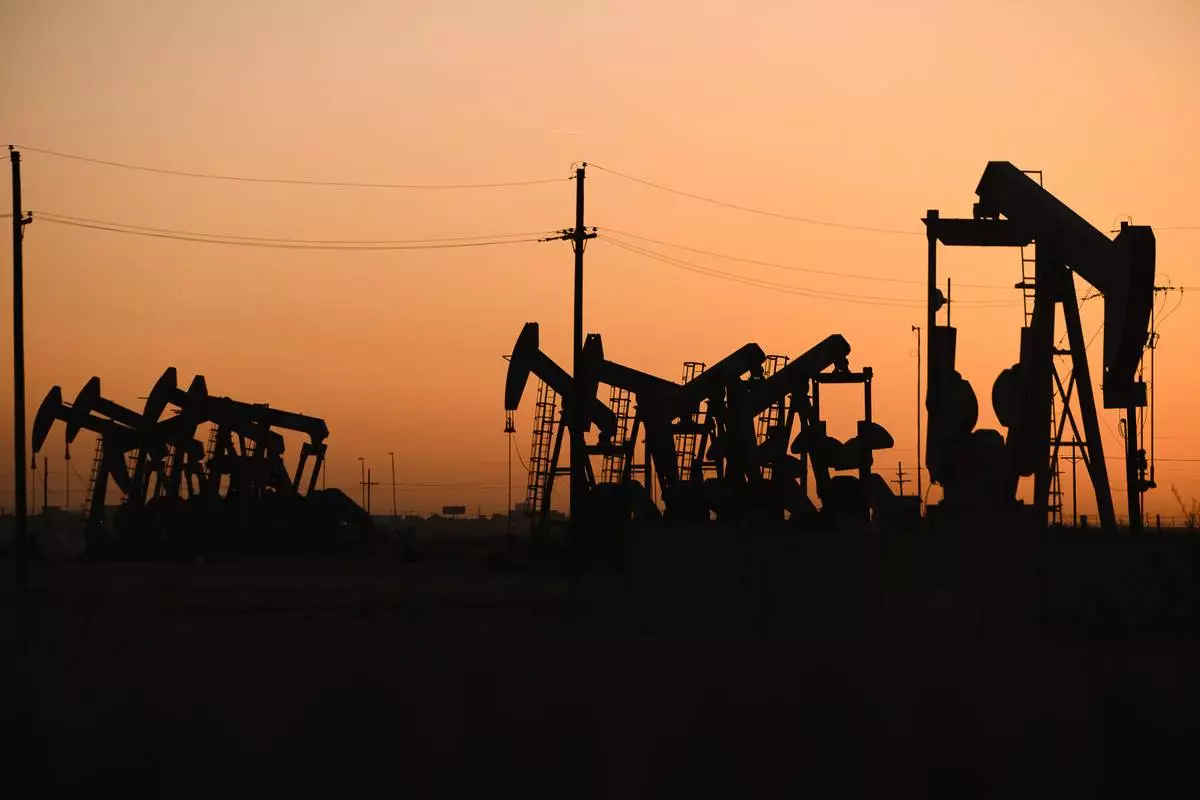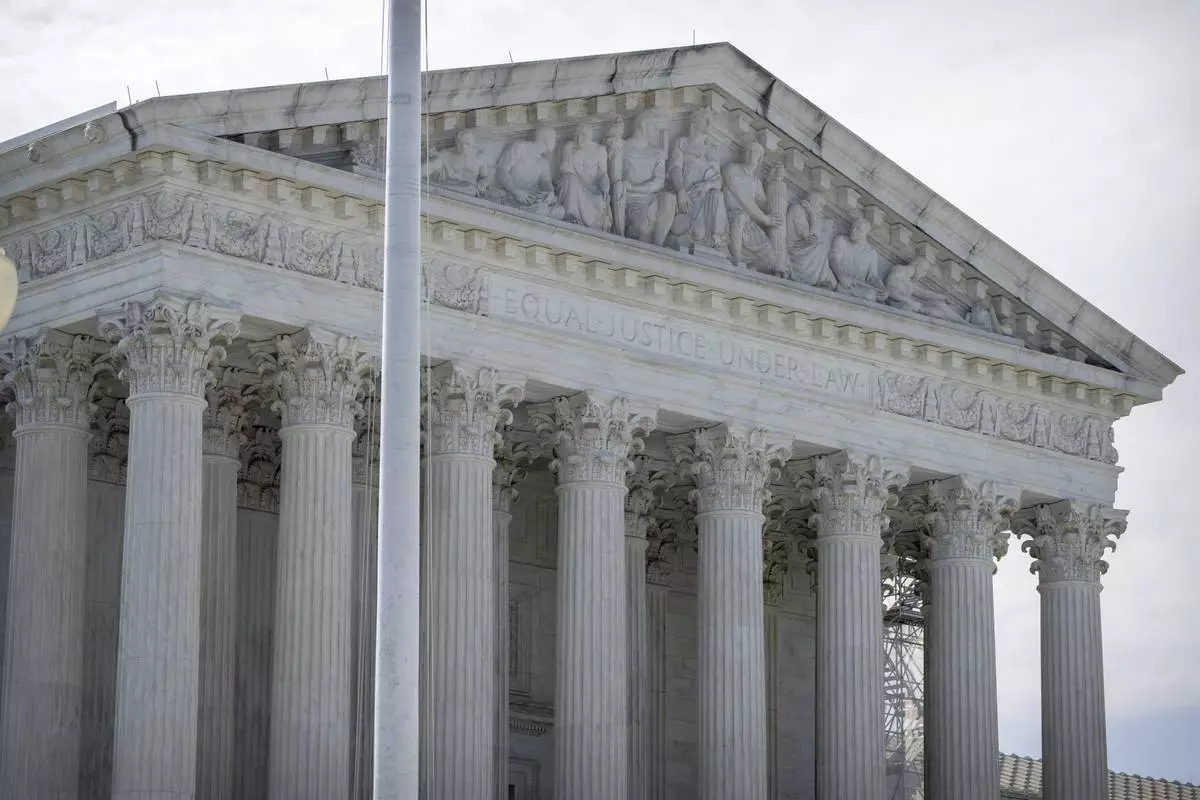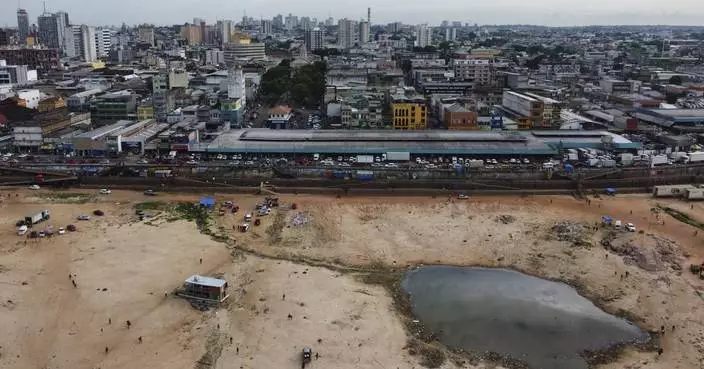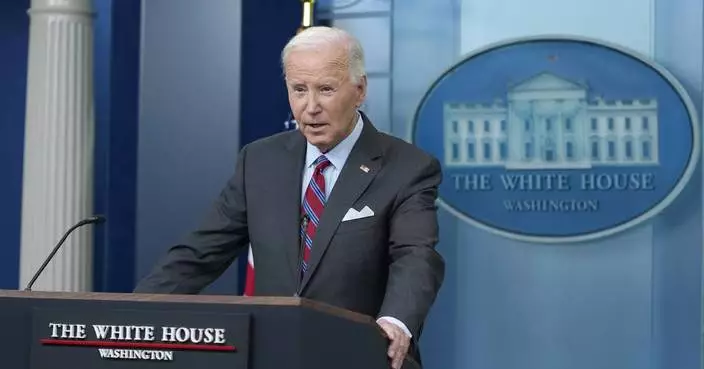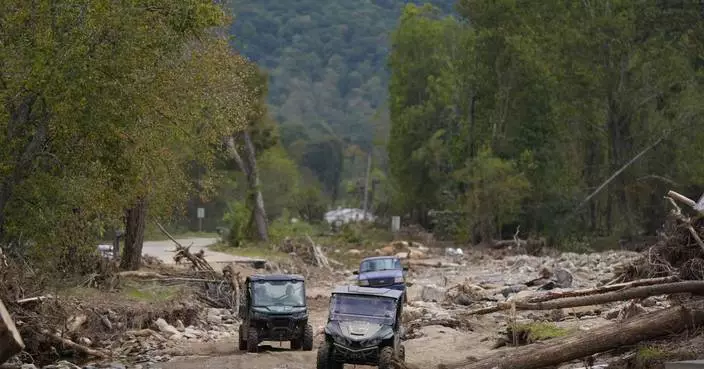MAIDUGURI, Nigeria (AP) — For the first time since 2020, three female suicide bombers attacked the Nigerian border town of Gwoza, where Boko Haram extremists declared a short-lived caliphate 10 years ago, signaling that the world's longest war on militancy is still ongoing.
This came two days after officials touted success in their war against extremists, with Nigeria's military spokesperson Maj. Gen. Edward Buba telling reporters the often-used phrase: “We have greatly degraded the terrorists.”
The first of the three coordinated suicide bombings on June 30 targeted a well-attended wedding, the second was detonated at the victims' funeral and the the third at a hospital attending to the injured.
At least 32 people in total were killed in the attacks, including nine family members and friends of Mohammed Kehaya, a resident who is now worried about his safety in the state of Borno, a hotbed of Islamic militancy, where extremists once kidnapped hundreds of schoolgirls in 2014.
No group has claimed responsibility for the bombings, but blame quickly fell on Boko Haram, which since 2009 has launched an insurgency to establish its radical interpretation of Islamic law, or Sharia, in northeastern Nigeria. They have since splintered into different factions, together accounting for the direct deaths of at least 35,000 people and the displacement of more than 2 million amid a humanitarian crisis with people in dire need of foreign aid.
Still, Nigerian authorities maintained that the attacks were not a “setback.”
Nigeria's Defense Chief Gen. Chris Musa said the bombings were rather “a sign of desperation” and described them as a one-off by the militants. “Some individuals would do everything possible for us not to succeed,” he said.
However, several security analysts and locals interviewed about the bombings echoed concerns that the attacks must have taken a lot of planning and coordination and portend danger in Borno, where some villages lack security presence.
One of the extremists’ goals could be to distort the narrative that the security situation in the region has normalized, said Vincent Foucher, consulting senior analyst for West Africa at the International Crisis Group.
“It’s a way to show the war goes on,” Foucher said.
In Borno, the three bombings sent shock waves across families and left many wondering whether they should pack what was left of their belongings and flee once again.
“Parents have been calling in to ask if their kids would be safe going back to school,” said Yusuf Ibn Tom, a public school teacher in Maiduguri. “Everyone here is scared.”
At the height of the insurgency in 2014, Boko Haram was considered the world's deadliest terrorist group, killing at least 6,000 people that year alone, according to the Institute for Economics and Peace’s Global Terrorism Index. A lot has changed since then, making the extremists far less lethal.
The military has pushed them further into the fringes of the Lake Chad axis, and the 2021 death of the group’s founding leader, Abubakar Shekau, demoralized some members and made suicide bombing less popular. Clashes between Shekau’s faction and the one linked to the Islamic State group have made the extremists turn against themselves, sometimes shifting the focus of attacks from the military and civilians and even contributing to the defection of thousands who are undergoing a reintegration program.
But what has not changed over the years is the “operational prowess” of the extremists, said Cameron Hudson, an Africa expert at the Center for Strategic and International Studies.
Attacks like the latest one “are rarely one-off incidents and are often part of a wider series,” Hudson said, not ruling out that more might come in the future. “That will give a better indication of the relative strength of the insurgency today as well as the Nigerian military’s ability to respond,” he added.
Asadu reported from Abuja, Nigeria.
Follow AP’s Africa coverage at: https://apnews.com/hub/africa
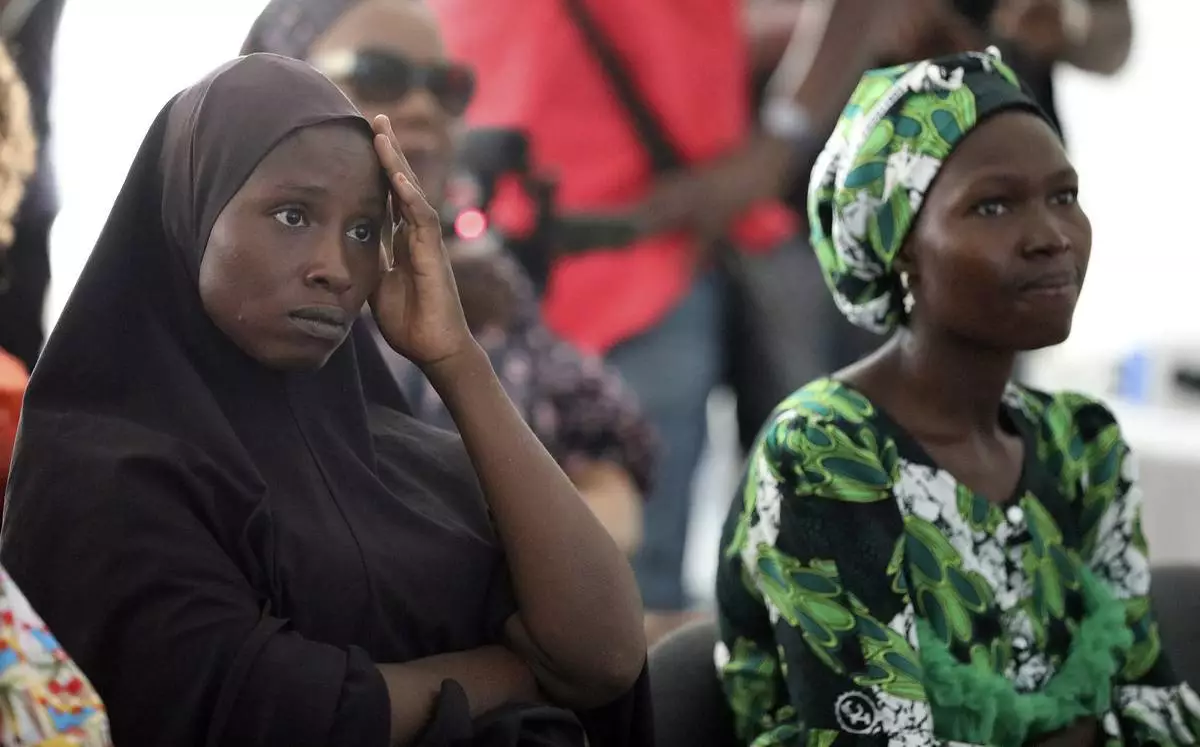
FILE - Parents of Chibok schoolgirls who were kidnapped in 2014 by Islamic extremists, attend a 10th anniversary event of the abduction in Lagos, Nigeria, on April 4, 2024. Recent suicide bombings in northeastern Nigeria have raised questions about the country's claim that it has degraded the Islamic extremists whose insurgency since 2009 has killed more than 35,000 people directly and displaced more than 2 million. (AP Photo/Mansur Ibrahim, File)

FILE - Injured victims of a suicide bomb attack receive treatment at a hospital in Maiduguri, Nigeria, on June 30, 2024. Recent suicide bombings in northeastern Nigeria have raised questions about the country's claim that it has degraded the Islamic extremists whose insurgency since 2009 has killed more than 35,000 people directly and displaced more than 2 million. (AP Photo/Joshua Omiri, File)

FILE - An injured victim of a suicide bomb attack receives treatment at a hospital in Maiduguri, Nigeria, on June 30, 2024. Recent suicide bombings in northeastern Nigeria have raised questions about the country's claim that it has degraded the Islamic extremists whose insurgency since 2009 has killed more than 35,000 people directly and displaced more than 2 million. (AP Photo/Joshua Omiri, File)



